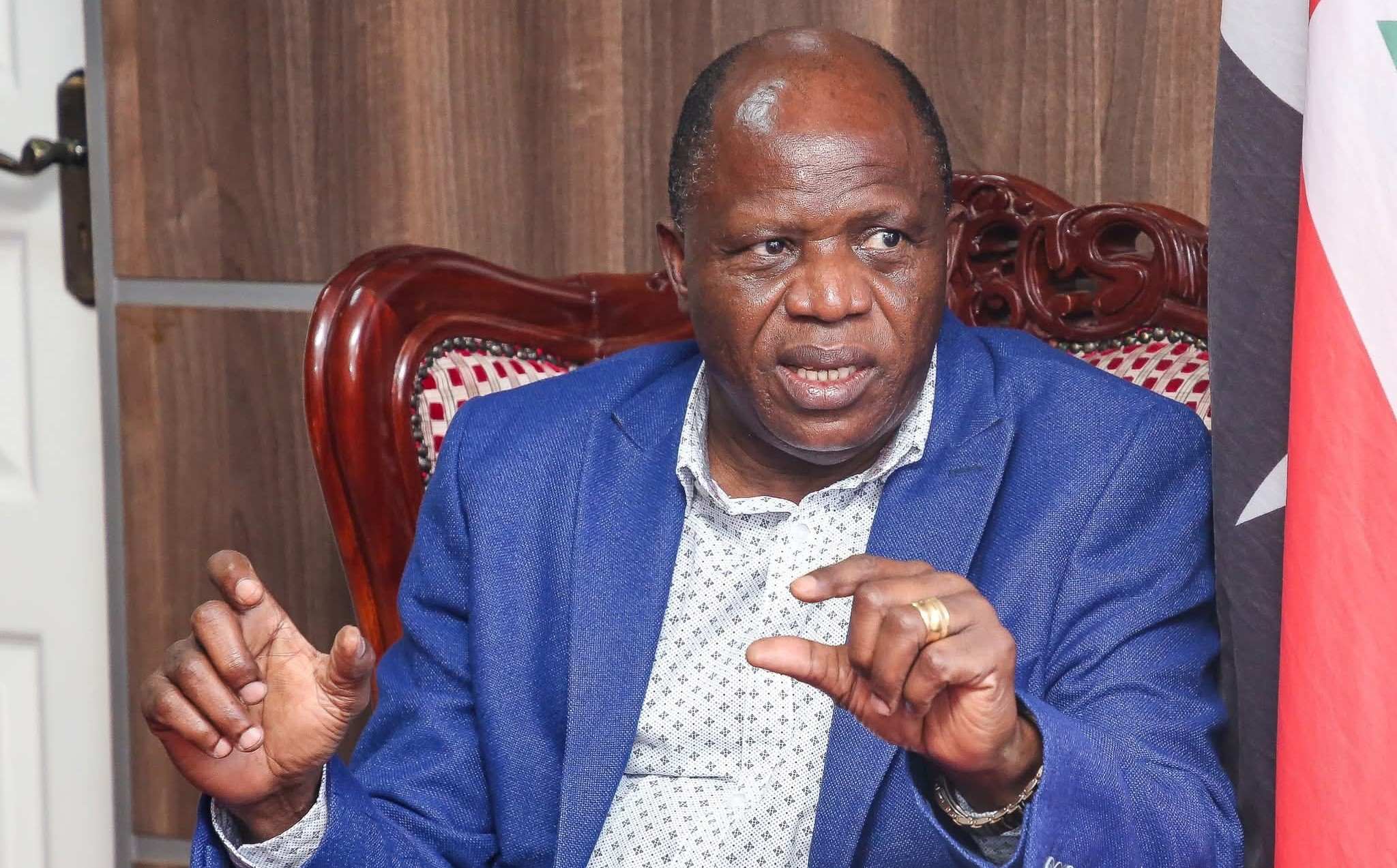NEMA kicks off raids as plastic bags return to Kwale despite ban

NEMA says they have started conducting raids to nab manufacturers and suppliers of plastic bags.
The National Environment Management Authority (NEMA) has launched operations to end a return to plastic bag usage in Kwale County, despite a 2017 ban by the Kenyan government.
The authority has put small-scale traders on the spot for flouting the ban, saying sugarcane and vegetable sellers and food stall and retail shop operators notoriously break the law.
More To Read
- NEMA targets Sh2 billion revenue through new digital licensing system
- MPs fault top state agencies over weak accountability, stalled reforms
- Auditor General flags NEMA for relying on a single officer to evaluate thousands of projects
- NEMA cracks down on improper waste transport under new regulations
- NEMA shuts down over 200 illegal gold mining sites along River Turkwel in Turkana
- Ethiopian parliament passes Bill banning single-use plastic bags
Speaking to The Eastleigh Voice, NEMA's Kwale director, Godfrey Wafula, said they have started conducting raids to nab manufacturers and suppliers of plastic bags.
Wafula cited a case last month when the authority arrested a plastic bag supplier in Ukunda and another at the Msambweni Law Courts.
"In March, we arrested one supplier who had a plastic bag consignment in his shop at Ukunda. We took him to the police station and now, he is facing charges," he said.
The NEMA official noted that plastic bags get into Kwale as it is a border county.
"We realised many of these plastic bags are not manufactured in the country but they find their way in through the porous borders. We have collaborated with border police and the county government to ensure security is enhanced at the border," he said.
 A file picture of Godfrey Wafula, the Kwale County director of the National Environmental Management Authority (NEMA), speaking to the press. (Photo: Handout)
A file picture of Godfrey Wafula, the Kwale County director of the National Environmental Management Authority (NEMA), speaking to the press. (Photo: Handout)
Wafula also noted that they were working with the municipality to ensure markets in Kwale are rid of the bags that are health hazards.
Asked how the authority was managing the plastic pollution in the ocean, the director said they were working with civic groups and volunteers as part of a beach cleaning movement.
"We have plastics from the sea and land. We cannot control the plastics in the sea because they come from other countries through the sea. We, however, ensure whatever is on our land does not enter the ocean," he said.
He added that they have been working with the county government and police officers to cut the chain between manufacturers, suppliers, and users of plastic bags.
Wafula further warned factories that have continued manufacturing plastic bags and supplying them to small-scale traders within the tourism hub.
The plastic bag business is thriving in Kwale despite the ban, with traders, especially food and vegetable vendors, using them to pack small quantities of commodities for their customers.
Random checks by The Eastleigh Voice established that various retail shops and food stalls within the county use plastic bags.
Salma Athman, who operates a food stall in Diani, said she uses plastic bags because of their affordability and durability.
"Compared to paper bags, plastic bags are cheaper and more durable. Paper bags easily get soaked when you use them to pack food," she said.
Asked whether she was aware of the dangers she exposes her customers to when she packs hot food in plastic bags, Salma said she was not aware of any.
"People packed things in plastic bags way before I was born and nothing happened to them. None of my customers have complained of any health problems."
According to health officials, when hot food is packed in plastic bags, chemicals from the bag, including polyvinyl chloride, mix with the food, posing a risk as they can cause cancer, heart disease, and reproductive problems.
Plastic bags are a major environmental concern since they are not biodegradable.
Top Stories Today















































